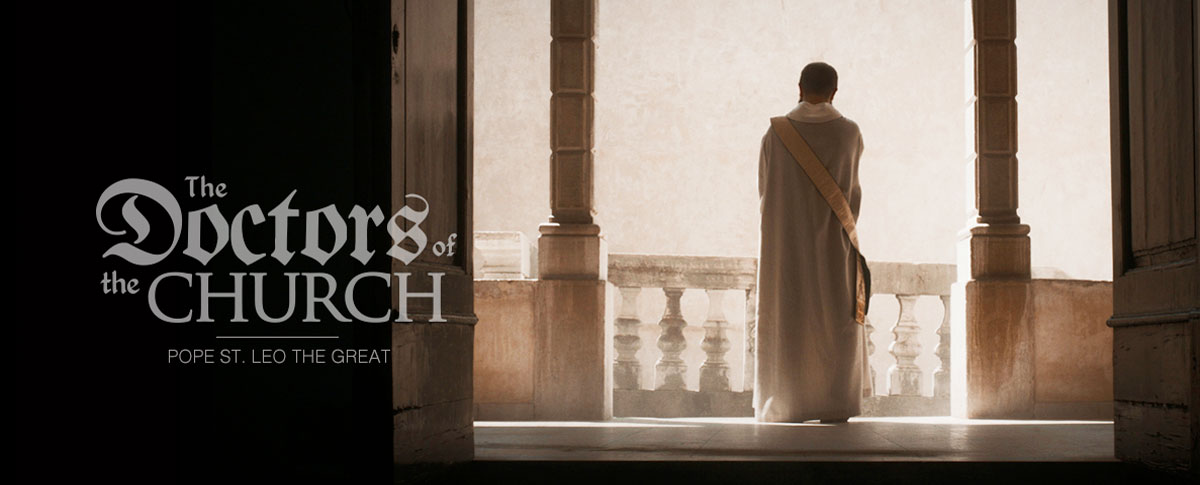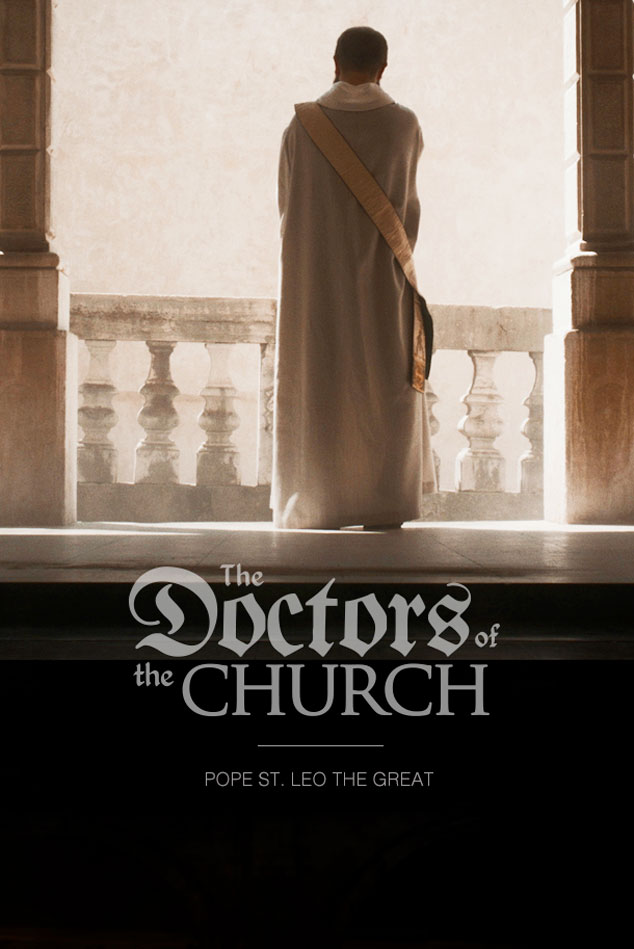Episode Three: Pope St. Leo the Great
Pope from 440-461, Leo I is one of only four popes – with St. Gregory I, St. Nicholas I, and St. John Paul II – to be given the title “the Great.” He was also one of the most important popes in Church history.
Little is known with certainty about his early years. He was born in Rome, served as a deacon, and was a pronounced opponent of Pelagianism. While serving as a deacon, he wielded considerable influence during the reigns of St. Celestine I (422-432) and Sixtus III (432-440) and was elected the successor to Sixtus while away in Gaul. He was consecrated on September 29, 440, and took as the primary policy of his long pontificate the aggrandizement of the papacy throughout Christendom, the full recognition of the primacy of the Bishop of Rome as the successor of St. Peter. He maintained the obedience of those dioceses around him and then worked to secure his jurisdiction over the sees in Gaul (France) and Spain; he was also successful in winning the trust of the African bishops by providing them with advice and regulations aimed at curbing various irregularities then afflicting the Church there.
An important development came with Leo's obtaining from Emperor Valentinian III (r. 425-455) a rescript granting him full jurisdiction over the West. He thus received vast powers in the Western Empire, and, although his authority was not recognized in the East, such was the force of his personality and the heightened gravitas of the papacy that Leo was inexorably drawn into the major theological crisis that had erupted in the Eastern Empire over the nature of Christ. He sent his famous Tome to Flavian of Constantinople on June 13, 449, condemning Eutyches and elucidating clearly the important teaching that Christ had two natures in his one Person. Three legates were sent to the Council of Ephesus (449) where the pope fully expected the Tome to be read. Instead, it was rejected, Eutyches was fully restored to favor, and Flavian deposed as patriarch. Leo called the Council of Ephesus the Latrocinium, or Robber Synod, and used his full weight to reverse its acts. At the Council of Chalcedon (451), his Tome was read and given full approval, the decrees of Ephesus were rescinded, and the doctrine concerning the Person of Christ formally proclaimed. Chalcedon marked a major triumph for Leo, particularly the declaration by the council members that “Peter has spoken through Leo. . . .” In keeping with his principle concerning the Roman see, however, he rejected Canon 28 of the Chalcedonian decrees granting broad patriarchal rights to Constantinople.
Leo was also of enormous help to the increasingly weak imperial government. When, in 452, Attila the Hun was poised to sack all of Italy, the pope bravely met him at Mantua and convinced him to withdraw. Three years later, the Vandals under King Geiseric arrived, and Leo greeted him at the gates of Rome. While unable to prevent the sack of the city, he did win from Geiseric the promise not to burn or massacre. He died on November 10, 461, and was buried in St. Peter's. Of his writings, there are extant one hundred forty-three letters and ninety-six sermons; he may have contributed prayers to both the Leonine and Gelasian Sacramentaries. In theological matters, he is considered a strong advocate of orthodoxy. Pope Benedict XIV (r. 1740-1758) declared him a Doctor of the Church. His feast day is November 10.



